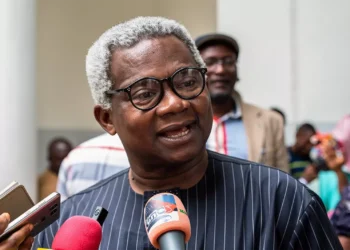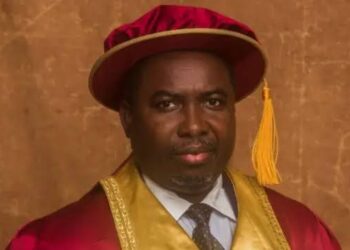The Minister of the Federal Capital Territory, Nyesom Wike has responded to the earlier criticism made by renowned human rights lawyer Femi Falana regarding the provision of housing and cars to judges, stating that his reaction was a mere display of emotions and sentiments.
Reacting through his aide, Lere Olayinka, Wike’s Senior Special Assistant on Public Communications and New Media, he argued that Falana’s position was patently wrong. Mr. Falana had on Wednesday criticized Wike over the provision of housing and cars to judges, describing his action as unconstitutional.
FCT Minister, Nyesom Wike, on Friday said contrary to a claim Femi Falana, that the provision of housing and cars to judges was unconstitutional, the Senior Advocate of Nigeria (SAN) got it all wrong. The minister, in his statement, insisted that there was “nothing wrong in the Federal Government providing accommodation for judges as well as officials of other arms of government.”
In defending the government’s action, Olayinka said separation of powers is not absolute, stating that Falana’s stance was blatantly incorrect and only an expression of feelings and opinions against the FCT Minister. “Wouldn’t there still be need for land from the FCT Ministry if the houses were to be built by the judiciary? And if it is about exercising influence over the judiciary, is allocation of lands not enough?” he questioned.
“Also, the money to build the houses will still have to be appropriated by the National Assembly, headed by politicians who also have cases before judges. Should we also say that bringing the budget of the judiciary to the National or State House of Assembly for passage will influence judges if cases involving the lawmakers are brought before them?” he asked. He added that the Police and other security agencies that provide security for the judges have court cases too, asking if Falana was inferring that the security agencies will influence the judges.
“Anti-corruption agencies like the Economic and Financial Crimes Commission (EFCC) and the Independent Corrupt Practices and Other Related Offences Commission (ICPC) investigate and prosecute judges; will Oga Femi Falana also say that investigation and trial of judges for alleged corruption should not be done by the anti-graft agencies so as to avoid influencing the judiciary?
“Maybe judges should create their own hospitals so that doctors, especially those in public hospitals, won’t influence them. After all, medical practitioners too do have cases in court. “Finally, may be judges should stop having friends and family members. They should be operating in seclusion so that no one will influence them. Or they should just create their own world so that they won’t be influenced by anyone.”
Instead of wasting energy on the executive branch of government carrying out its own responsibilities, Olayinka encouraged Falana to focus more on encouraging the provision of judges with comfort housing and security they need to do their tasks. He emphasized that “right things are still done by the justices of the Supreme Court, even in the United States of America, where they are perceived as being affiliated with political parties.”




































